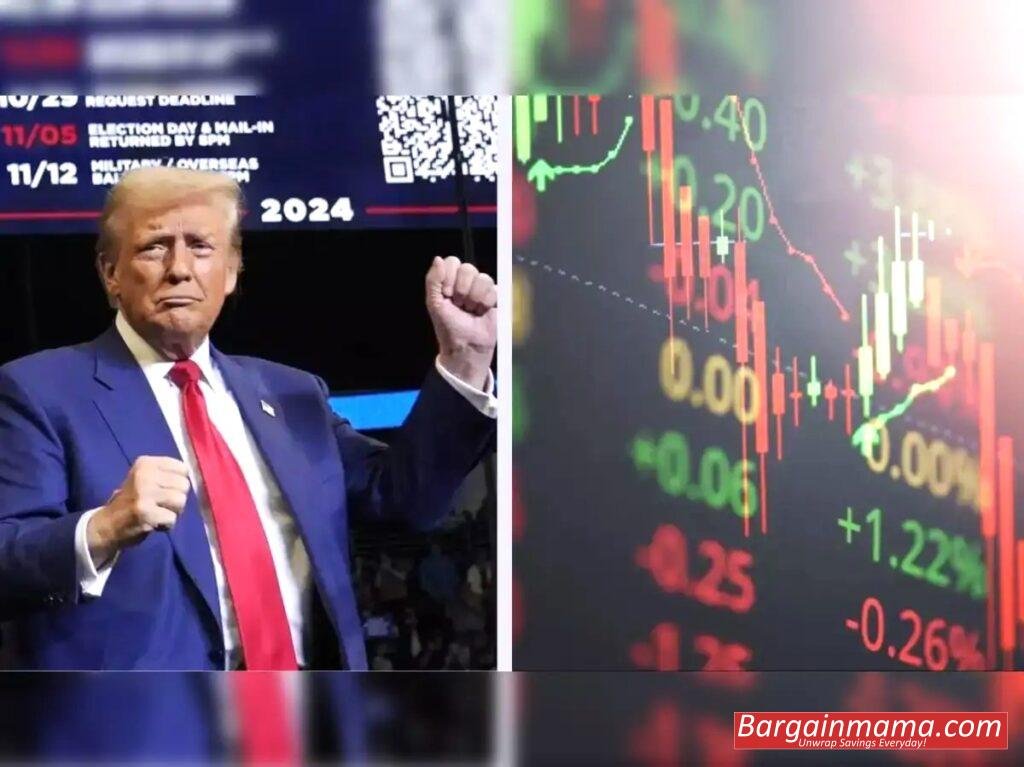As President Donald Trump begins his second term, investors are gearing up for significant policy shifts that promise to reshape the market landscape. The administration’s focus on lighter regulations and tax cuts has boosted Wall Street’s confidence. Combined with easing inflation and strong corporate earnings, the S&P 500 has risen 3.6% since November 5. However, Trump’s unpredictable governing style could inject volatility into the markets, presenting both opportunities and risks for different sectors.
Here’s a look at the sectors expected to thrive or struggle under Trump’s renewed leadership, based on insights from top CEOs and analysts.
Sectors Poised to Thrive Under Trump
Financials
The financial sector is expected to benefit from deregulation and increased M&A activity, which could drive higher corporate profitability. Major banks have already reported strong earnings, reflecting growing optimism.
Goldman Sachs CEO David Solomon commented, “It feels like we have a tailwind going into 2025,” citing increased confidence among CEOs following the election. Similarly, JPMorgan CFO Jeremy Barnum referred to an “animal-spirits moment” in the market. Analysts predict that reduced regulatory burdens will enhance operational stability for financial institutions, fostering growth.

Chris Whalen, chairman of Whalen Global Advisors, emphasized the need for consistent regulations, stating, “We need a level, less volatile regulatory environment.” The anticipated easing of Basel III reforms could further benefit banks, while smaller players may capitalize on synergies through increased M&A activity.
Industrials
Industrial companies are experiencing renewed confidence after a prolonged period of contraction. Many industry leaders expect growth to accelerate in 2025, driven by pro-business policies and the influence of key figures like Elon Musk.
“Better growth is only a matter of time,” noted Goldman Sachs analyst Joe Ritchie. HEICO co-president Eric Mendelson also expressed optimism, citing a “very positive environment” for industrial firms.
Airlines
The airline sector is expected to benefit from tax reforms and a more supportive regulatory framework under Trump’s administration. Experts foresee a rollback of consumer protection measures introduced during the Biden era, creating a more favorable environment for air transportation and aerospace industries.
“The regulatory environment I hope is more constructive,” Southwest CEO Bob Jordan remarked. Analysts predict that smaller airlines may pursue mergers and joint ventures to better compete with industry giants, with a higher likelihood of such activity in 2025.
Technology
Big Tech companies are positioning themselves to capitalize on Trump’s deregulatory agenda and increased investments in artificial intelligence (AI). Industry leaders, including Amazon’s Jeff Bezos and Apple’s Tim Cook, have expressed support for Trump’s policies, with many contributing to his inauguration campaign.
Wedbush analyst Dan Ives envisions a “Goldilocks” scenario for the tech sector, forecasting a 25% surge in 2025. Reduced regulatory scrutiny and stronger AI initiatives are expected to drive growth, creating a favorable climate for Big Tech firms.
IBM CEO Arvind Krishna highlighted the importance of regulatory predictability, stating, “A more certain regulatory process allows us to take risks and pursue opportunities like M&A.”
Sectors Facing Challenges Under Trump
Automakers
The automotive sector could face significant hurdles due to Trump’s plans to roll back electric vehicle (EV) incentives and impose tariffs on key imports. These measures threaten supply chains and may increase production costs.
Mazda North America CEO Tom Donnelly voiced concerns about the uncertainty surrounding Trump’s policies. “No business can absorb the magnitude of what’s being discussed here,” he warned. Analysts estimate that tariffs on Mexico could result in a 45-50% earnings hit for General Motors, creating a challenging environment for the industry.
Discount Retailers
Discount retailers, heavily reliant on imports from China, are particularly vulnerable to Trump’s tariff policies. Companies like Boot Barn and Dollar Tree may face higher costs, prompting difficult decisions about product sourcing and pricing strategies.
Dollar Tree CEO Michael Creedon acknowledged the potential impact of tariffs, noting the company’s ability to “eliminate certain products altogether” if necessary. Retailers are bracing for disruptions that could affect their margins and supply chains.
Construction
The construction sector faces risks from Trump’s proposed tariffs on building materials and policies targeting undocumented workers. Higher tariffs on Canadian lumber and Mexican drywall could increase costs, while labor shortages may delay projects.
“Higher costs will slow building activity,” warned Joel Berner, senior economist at Realtor.com. Developers may hold off on new investments, further dampening growth in the sector.
Market Outlook: Opportunities and Risks
Trump’s second term presents a complex landscape for investors, with some sectors poised for substantial gains while others face significant challenges. To navigate this environment, investors should focus on sectors likely to benefit from deregulation and tax reforms, while remaining cautious in industries exposed to tariff risks and policy uncertainty.
As the administration’s policies take shape, market volatility is likely to persist. However, for those who strategically position themselves, Trump’s second term could offer promising opportunities in the right sectors.



